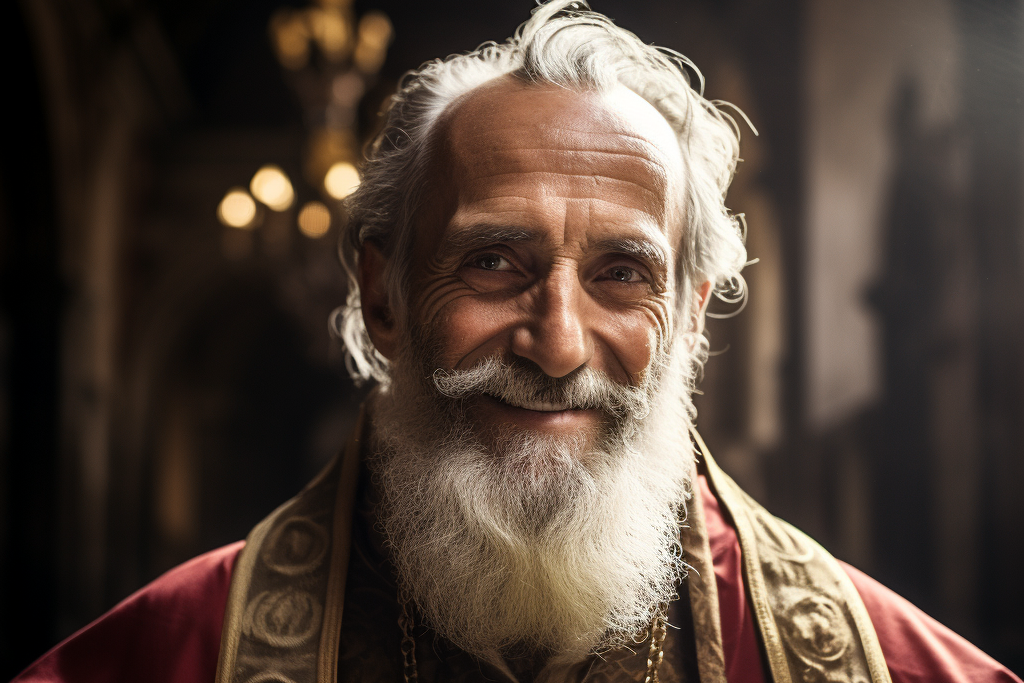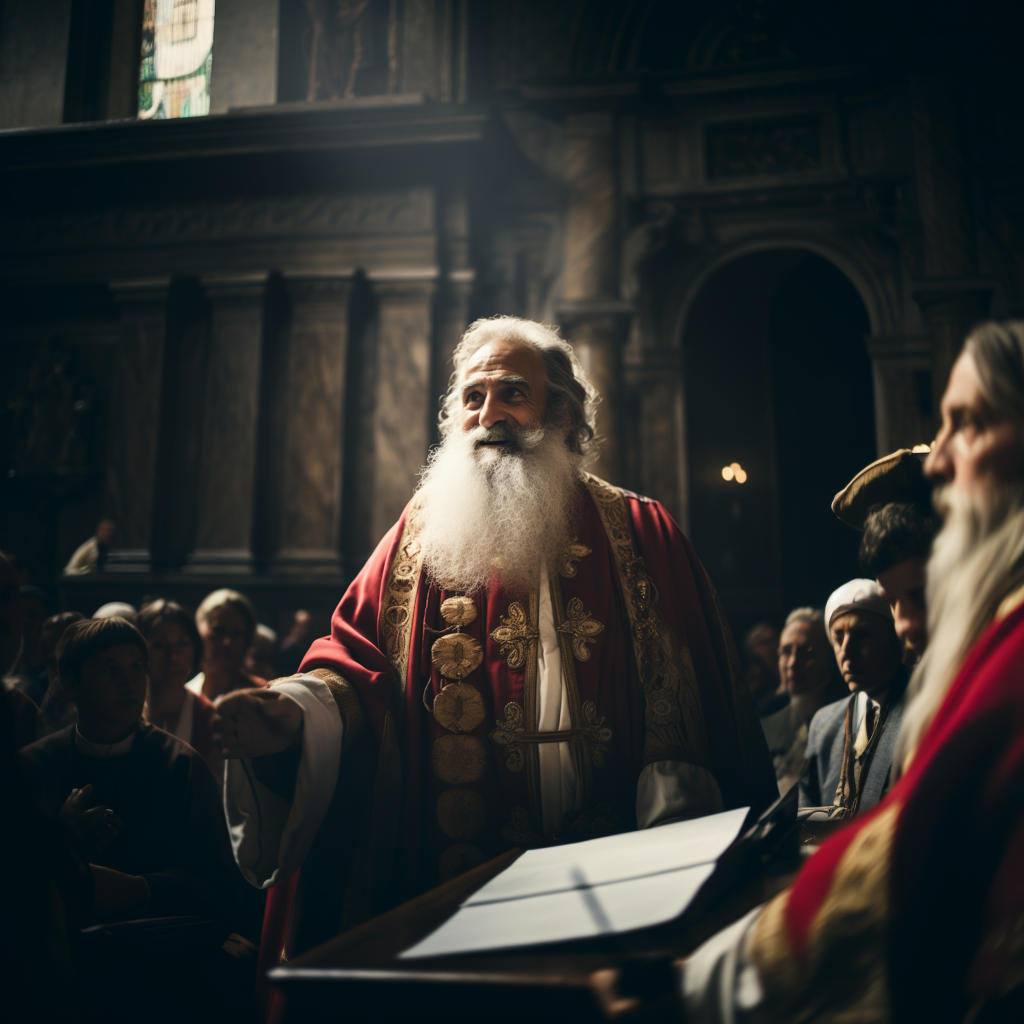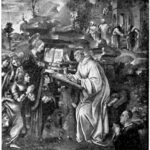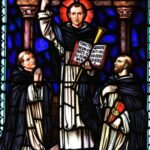
St. Cornelius
St. Cornelius
St. Cornelius – A Pillar of Faith Amidst Worldly Turmoil
When they lived:
St. Cornelius lived during the tumultuous and transformative era of the third century. Born in 200 AD, his life spanned
through a period of immense challenges and profound changes in the Roman Empire.
Where they lived:
St. Cornelius resided in the city of Rome, which was not only the capital of the Roman Empire but also the heart of
the Christian community during his time.
Notable world events during the time of their life:
- The Crisis of the Third Century (235-284 AD): During this time, the Roman Empire faced an
unprecedented series of crises, including political instability, economic downturns, and external invasions.
These challenges deeply affected the lives of people in the empire, providing a backdrop of chaos against
which St. Cornelius’ faith and leadership would shine. - The Rise of Christianity: The third century saw Christianity steadily gaining popularity and
recognition in the Roman Empire. St. Cornelius was a prominent figure in the early Christian Church, playing a
vital role in its growth during this crucial period. - Birth of Aurelian Wall (271 AD): Emperor Aurelian initiated the construction of the famous
Aurelian Wall around Rome. The wall served as a protective barrier against invading forces and marked a
significant architectural feat of the time. - The Great Persecution (303-311 AD): During the reign of Emperor Diocletian, Christians faced
severe persecution. St. Cornelius courageously led the Christian community, ensuring the strength and
resilience of the faith during this trying period. - The Edict of Milan (313 AD): Emperor Constantine’s Edict of Milan marked a monumental shift in
Roman policy towards Christianity, granting religious tolerance and ending the persecution of Christians.
This decree played a pivotal role in the establishment of Christianity as a recognized and eventually
dominant religion in the empire. - The Founding of Constantinople (330 AD): Constantine the Great, who became the first Christian
Roman Emperor, established Constantinople (modern-day Istanbul) as the new capital of the Roman Empire. This
shift in power significantly impacted the course of Christianity and the Roman Empire’s history.
Their patronage:
St. Cornelius is venerated as the patron saint of perseverance, leadership, and compassion. He is especially revered
among Catholics and Christians for his unwavering dedication to the faith during a time of immense adversity and
uncertainty. As a symbol of steadfastness in the face of persecution, St. Cornelius serves as an inspiration to
individuals navigating challenging circumstances in their lives, regardless of their religious affiliations. His
life and legacy continue to be celebrated, reminding us that faith and determination can shine brightly even in
the darkest of times.
Church Persecution
Emperor Decius, who ruled from 249 to 251 AD, was responsible for Christian persecution. Initially, it was just sporadic, but from January 250 on, he ordered all citizens to perform a religious sacrifice in the presence of commissioners; otherwise, they would face death. This resulted in the deaths of many Christians who had refused, and there were also others who took part in order to save their lives.
It was after this incident that there were two schools of thought with regard to those who had stopped practicing Christianity during those times of persecution.
During the times of church persecution, it was not possible to elect a successor, and the papal seat was vacant for a year. During these times, the church was under the leadership of various priests, including Novatian. When Decius left Rome to fight the invading Goths, the church seized the opportunity, and they elected Cornelius as the new Pope in March 251.
Conflict in the Church
There were conflicts over how the repentant church members who used to practice pagan sacrifices to protect themselves during times of persecution could be readmitted to the church. St. Cornelius was for the idea that these repentant people should be restored to communion with the church after varying forms of penance.
This was, however, not what the Novationists (those led by Novatian, who was a priest in a Roman diocese) believed; they strongly believed that those who failed to maintain their confession should never be received again into communion with the church, even if they repented. The Novatians were also for the idea that idolatry was unpardonable and the church had no authority to forgive it, with only God having that authority.
Even after St. Cornelius was ordained as pope, those who supported Novatian did not acknowledge him, and they even consecrated Novatian as abbot. Both parties sent letters to other bishops seeking support and recognition. St. Cornelius had the support of many bishops, yet Novatian had the support of minority clergymen and laymen.
This disagreement resulted in a rift in the church, which became widespread as each side worked towards gathering support. Even though St. Cornelius held a synod of 60 bishops, which is an assembly of clergymen, and he managed to excommunicate the Novatian, the controversy regarding these lapsed members continued for years.
Church persecution resumed in 251 under Emperor Trebonianus Gallus, who was the successor to Decius. This unrest resulted in St. Cornelius being sent into exile in Centumcellae, Italy, and he died there in 253. There are accounts that state that he was beheaded on the 14th of September, even though initial reports stated that he died from the hardships of being exiled.

Legacy
St. Cornelius was venerated as one of the Four Holy Marshals in the Rhineland during the Middle Ages. His saint’s day is celebrated on September 16.
He is the patron of earache, epilepsy, fever, twitching, and also of cattle, domestic animals, earache sufferers, epileptics, and the town of Kornelimünster, Germany, where his head is enshrined.
5 Interesting Facts About St. Cornelius
- There were at least 50 000 Christians in Rome during St. Cornelius’
time as a pope. - St. Cornelius is not buried in the chapel of the popes but in a
nearby catacomb. - The letters that Cornelius sent while he was in exile are all
written in colloquial Latin. - His remains miraculously consented to the marriage of two lovers.
after the bride’s father had said he would only allow them to get
married if Pope Cornelius agreed. - There is a legend that there were pagan soldiers who were chasing
him, and he turned them into stones.
Prayer to St. Cornelius
God our Father,in Saints Cornelius and Cyprian, you have given your people an inspiring example of dedication to the pastoral ministry and a constant witness to Christ in their suffering. May their prayers and faith give us courage to work for the unity of your church. Amen.



